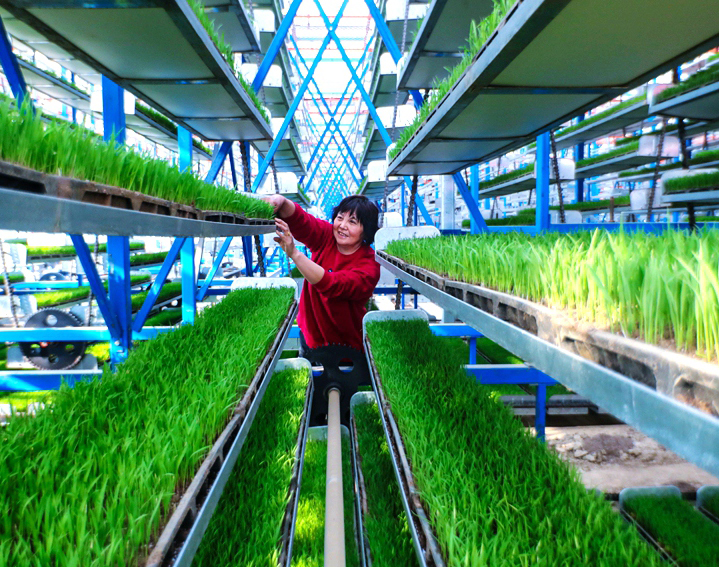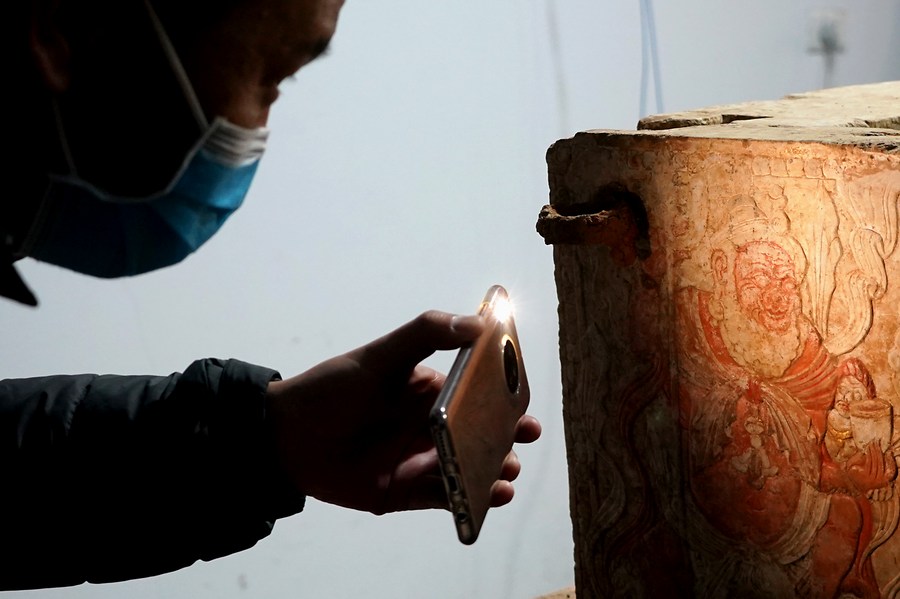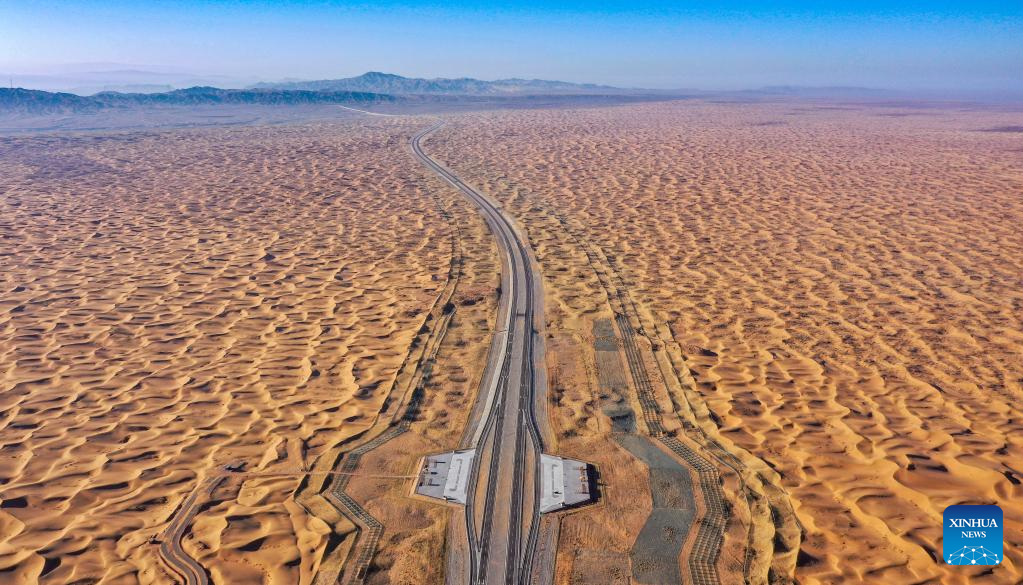Thousands of medics rush to Sanya to aid anti-epidemic fight
Li Juan, a nurse at the First Affiliated Hospital of Zhengzhou University in central China's Henan Province, came to Sanya, a popular coastal resort city, several days ago.
She did not come on holiday. Instead, her daily routine is collecting nucleic acid samples, clad in a heavy hazmat suit, in a neighborhood in Tianya District.
Between Aug. 1 and 11, over 4,000 COVID-19 infections were reported in Sanya, southern Hainan Province, and the situation is still severe as the new infections exceeded 1,000 on Thursday.
This is the first time for Li to aid an anti-epidemic fight outside Henan.
"I was the first to sign up when our head nurse posted a message asking if anyone is willing to go to Sanya," Li said.
She gets up before 5 a.m. every day and then takes a bus to Nanbianhai, a fishing village, to conduct nucleic acid testing. She also needs to visit the homes of those that are under quarantine or have difficulty moving.
"We should be there wherever and whenever needed," said Li.
Li was among 100 medics from the First Affiliated Hospital of Zhengzhou University that arrived in Sanya to join the anti-epidemic fight over the weekend.
"Our hospital is the largest one in Henan, and our medical staff has always been on the frontlines of fighting the epidemic, from Wuhan to Shanghai to Henan's Anyang," said Zhang Guangchao, a head nurse from the same hospital.
Over 10,000 medics from 19 provincial-level regions have been drafted to help Hainan in fighting the latest COVID-19 resurgence, with the majority in the worst-hit city of Sanya.
A team comprised of 201 medics from Hubei Province is in charge of the nucleic acid testing at 41 venues across six communities. They collect about 50,000 samples every day.
"It's a huge workload and the well-armed medical staff are soaked in sweat in half an hour under the scorching sun in Sanya. So we change shifts every two hours," said Jiang Botao, the team leader.
In a gymnasium at the Sanya Technician College of Hainan, a gas membrane nucleic acid testing lab set up by a team from south China's Guangdong Province was put into use on Aug. 7.
The daily nucleic acid detection capacity currently has hit 60,000 tubes, and the maximum capacity can reach 100,000 tubes.
"We hope to screen out the positive cases and let everyone's life return to normal as soon as possible," said Zhang Ning, who heads the team from Guangdong.
Recommend for you
Archaeologists find 570 ancient tombs in central China
China, Singapore vow to enhance cooperation
Viewpoint
- Gov't trying to help students find jobs
- Tackling inflation: How China is helping mitigate global price spikes
- Xinhua Headlines: China's Xi'an tightens control measures amid COVID-19 resurgence
- Russia's Nord Stream 2 pipeline ready to pump gas to Europe
- Uruguay confirms first cases of Omicron
- Walking in footsteps of Marco Polo
News
- Farmers cultivate rice seedlings ‘in the air’ in C China’s Henan
- Henan launches new freight route to Miami
- Sergio Diaz appointed head coach of CSL club Henan Songshan Longmen
- Activities held to celebrate upcoming Latern Festival across China
- January box-office earnings hit record high
- Villagers rush to complete overseas orders while embracing Spring Festival




